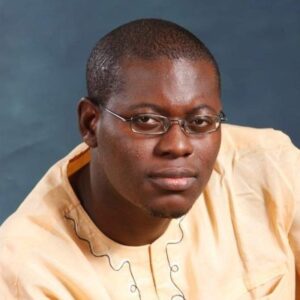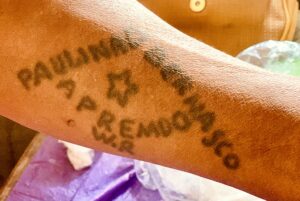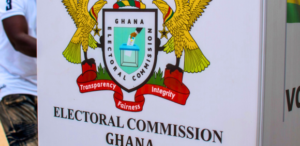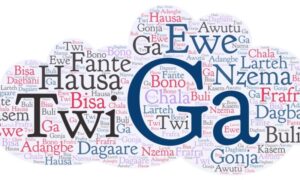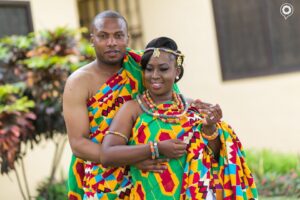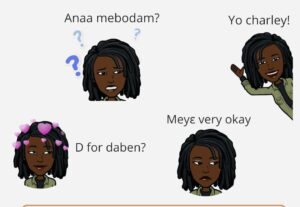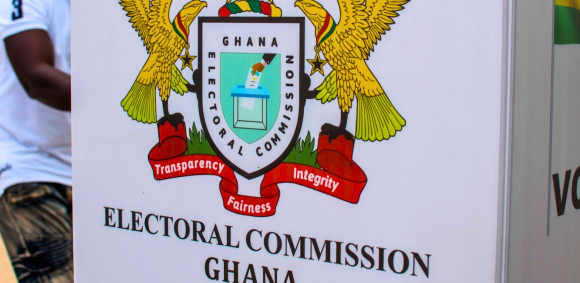
Since the establishment of the Fourth Republic in 1992, Ghana has held elections every four years, with election years always falling on even numbers. The country’s democracy is widely regarded as one of the strongest in Africa, with a history of peaceful elections since 1992, showcasing a commitment to democratic principles and political stability. As the country gets ready for the December 7 election, Ghanalingo.com finds it important to explain some popular election terms that everyone should know.
The most famous of these terms is the almighty ‘skirt and blouse’. As to why fashion has had it way in the country’s election is a thing of mystery, but then the famous ‘skirt and blouse’ has risen to top the rank in terms of election terminologies due to the performance of politicians. This term describes a voting pattern where an individual chooses candidates from different political parties for presidential and parliamentary positions. For instance, a voter may select the presidential candidate of one party but choose a parliamentary candidate from a different party. Simply put, this is where voters fail to vote for both parliamentary and presidential candidates belonging to the same party.

There is also another term known as ‘one touch‘, with its inspiration from one of Ghana’s old telecommunication network, now rebranded as ‘Telecel’. This refers to a decisive electoral win where a presidential candidate secures the required 50%+1 vote in the first round, avoiding a runoff. A “one touch” victory is highly sought after by political parties as it demonstrates clear majority support and saves resources required for a second round of voting. This term is usually heard from the supporters of Ghana’s biggest polical parties known as National Democratic Congress (NDC) and New Patriotic Party (NPP).
There are two important Akan terms often used in the context of elections: Toa so and Yɛresesa mu. Toa so means “continue,” referring to the act of voting for an incumbent candidate to remain in power or to rule again. On the other hand, Yɛresesa mu translates to “we are changing,” indicating that the voters are dissatisfied with the current leader and wish to replace them with a new candidate. These terms reflect the voters’ intentions and their stance on whether they want to maintain the status quo or bring about change.
One other term worth talking about is ‘floating voters‘. These are voters who are not loyal to any particular political party. Their votes are often unpredictable and can sway the outcome of elections. Political parties invest significant effort in attracting floating voters, especially in tightly contested regions as they are very special and can make up their minds on whom to vote for at any time. As some Ghanaians seem to be fed up with both the NDC and the NPP, there is no doubt that the 2024 elections may record the highest of such voters.
Apart from the aforementioned terms, there is ‘stronghold‘. As the name suggests, strongholds in elections are regions or areas where a political party enjoys overwhelming support. For instance, the Ashanti Region is often described as a stronghold of the New Patriotic Party (NPP), while the Volta Region is a stronghold of the National Democratic Congress (NDC). Stronholds are always the hope of political parties and that politicians do not jock with them.
For this year’s election, the two major political parties have adopted some key slogans. The first, “Breaking the Eight,” was initially used by the New Patriotic Party (NPP). It signifies the party’s goal to win the election and break the tradition where no party has ruled for more than 8 years in a row. This would make the NPP the first to serve three consecutive terms in government. However, when the Electoral Commission released the ballot paper arrangement, the National Democratic Congress (NDC) found themselves listed as number eight. As a result, the NDC has now adopted the “Breaking the Eight” slogan, meaning they are breaking the eight years spent in government by the NPP despite it originally belonging to the NPP.
The second slogan, “It is Possible“, is used by the NPP and expresses the party’s belief that it is indeed possible to break the eight and achieve a historic third consecutive term in office, emphasizing their confidence and determination.

The 2020 election introduced a term known as “comfortable lead“, which, ironically, has a meaning that differs from its usual interpretation in Ghana’s electoral context. The term was popularized by the General Secretary of the National Democratic Congress (NDC), Johnson Asiedu Nketia, during a post-election press conference. As the NDC began to sense that they were losing to the New Patriotic Party (NPP), instead of acknowledging the situation honestly, Asiedu Nketia introduced the term “comfortable lead.” In this context, it became a phrase used to describe a situation where a party, despite being behind, claimed to have a significant advantage leading to a term that, in practice, means the opposite of what it traditionally implies.
The last terminology is the almighty “strong room“. Strong room refers to a secure room where election results are stored and counted. It is typically located at the national or regional level and is designed to protect the integrity of the election process. The strong room ensures that all results are safely kept until they are officially announced. It is one of the greatest place in any other election as final declarations are made in the “Strong room”.
As we approach the December 7 election, it is important to remember that our democracy thrives on peace, unity, and respect for each other’s choices. Let us all engage in the electoral process responsibly, ensuring that our actions contribute to a peaceful and fair election. Together, we can build a brighter future for Ghana, regardless of the outcome. May the elections be peaceful, and may the voice of every Ghanaian be heard and respected.
Author: Ebenezer Kobinah Offen
Editor: Ama Gyesiwaa Quansah
